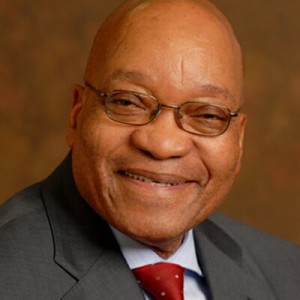This reset of bilateral cooperation appears to be a reciprocal action for Nigeria’s many decades of support to South Africa, especially during the years of anti-apartheid struggle.
With a population of about 53 million people and a GDP of close to 350 billion US Dollars, South Africa is considered a buoyant economy. Additionally, as an emerging economy with requisite technological know-how, South Africa will, by all means, be a suitable partner with Nigeria in our quest for growth and national development. With the precarious economic situation of Nigeria arising from the fall in oil prices, the seeming renewal of economic-cum-diplomatic relations between Nigeria and South Africa will greatly impact positively on our country.
It is therefore welcome that the South African President, Mr. Jacob Zuma undertook a state visit to Nigeria in the company of over 150 South African businessmen and potential investors. Nigeria is in a situation where in its bid to diversify its sources of revenue, it seeks to explore other areas of economic development, particularly in manufacturing, mining and agriculture. Incidentally, these are major areas in tandem with South Africa’s capacity to deliver as a potential partner to Nigeria.
President Muhammadu Buhari’s economic blueprint for Nigeria, which includes eliminating bottlenecks to businesses and offering incentives to foreign investors is beginning to yield the desired results. Our reset with South Africa through President Zuma’s visit signposts a new dawn in the bilateral relations between our two countries.
Since 1999, the number of major South African companies operating in Nigeria has risen to about 120, making the relationship more robust and having the potential for greater improvement. It is estimated that at least eighty bilateral agreements have been signed by both countries to boost trade, investment and diplomatic relations. Nigeria, with a population of about 173 million people and gross domestic product of nearly 521 billion US Dollars, offers the South African businesses a huge market for their products and services.
It is equally remarkable that the South African government is offering its support to Nigeria in the war against terrorism. Already, Nigerian defence officials have signed an agreement with their South African counterparts for the deployment of that country’s Special Forces to assist in the war against terrorism.
This reset of bilateral cooperation appears to be a reciprocal action for Nigeria’s many decades of support to South Africa, especially during the years of anti-apartheid struggle. Gladly, the South African president during his address to the joint session of the national assembly acknowledged this role of Nigeria in helping his country in their years of struggle for emancipation from the clutches of apartheid.
It is also pertinent to note that the new interest being developed in Nigeria by South Africa is easily traceable to the political and economic reengineering programme of the President Muhammadu Buhari administration in Nigeria. The openness and sincerity the president has brought to bear on statecraft has greatly improved the confidence of the international community in Nigeria.
South Africa is famous for its advancement in technology. In this regard, Nigeria stands to benefit from South Africa’s experience in mining, automobile assembling, metal works, machinery manufacturing; and the production of textiles, iron and steel, chemicals, fertilisers, foodstuffs and commercial ship repairs. It is worthy of note that South Africa is the world largest producer of platinum and chromium.
With the visit of the South African president, and considering the country’s huge investments in Nigeria, it is expected that, on the basis of reciprocity, measures will be put in place to balance the trade between both countries, while diplomatic relations are strengthened. President Buhari’s strategy of exploring new business and diplomatic channels for our overall national development should indeed be commended, and given all necessary support.
President Zuma’s visit also afforded both leaders the opportunity to iron out issues surrounding the incessant molestation of Nigerians resident in South Africa. These attacks on innocent Nigerians are seen in many quarters as xenophobic, and all efforts should be made to address the issues likely provoking such hatred and outbursts.
Nigeria’s partnership with South Africa needs to be anchored on mutual respect, friendship and understanding. Similarly, the visit afforded the two president a ground to sort out concerns around the issue of the fine levelled against South Africa’s MTN Nigeria by the National Communications Commission (NCC). Hopefully, the message will be delivered on the need for MTN and, indeed, other companies operating in Nigeria to obey the laws of their host country by abiding with the regulations in their respective sectors. It needs no telling that such acts of omission or commission are tantamount to a breach in our national security as they undermine our economy and by extension the political stability of the nation.
PREMIUM TIMES
END


Be the first to comment